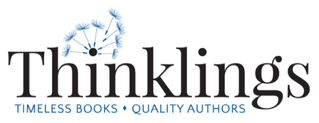|
All books have to start somewhere! But how can you write the opening of your book so that the reader is compelled to keep turning pages? Today I’m going to be discussing what makes a great beginning for your book. (If you’d like to view this post in video format, click here. It’s part of our “Advice from an Editor” series on YouTube.) Now, I should clarify here that when I talk about a book’s beginning, I’m not just talking about the first sentence or the first paragraph—what’s known as the hook of the book. I’m actually talking about the first several pages, how the book begins, where we are, the entirety of that. And for the entirety of that beginning, there are two essential ingredients to making a good start. The first is tonal consistency and the second is making the reader care. Let’s start with tonal consistency. By this I mean that the beginning of the book matches the entire rest of the book. You don’t have two distinct pieces, and in books that are very well-written, you won’t even notice. It won’t stick out as somehow different to you; it will be all part of the same book. So for this one, I actually want to give a counter-example of a book that doesn’t do that in order to show you what I mean. A couple of years ago, I was in a bookstore browsing. I had intended to buy something, and I picked up a book that claimed that it was a modern sequel to Dracula. Now, I love Dracula—it’s not a perfect book, but I think it is a very good one. It has a distinct voice, it’s very interesting, it has themes I enjoy, and I’m pretty picky. But I picked up the book and I read the first page, and it was in Bram Stoker’s style. Flawlessly. I thought, “This is someone who really gets it, who understands and loves the original and is going to write a worthy sequel.” So I bought the book and brought it home and read the whole thing, and . . . the style lasted maybe three pages, and it never came back. Not only did the book not deliver on the promise of style, but it went a step further. Whereas the first couple of pages were like “yeah, I get it,” the rest of the book showed again and again that either the author totally didn’t understand the original book or held it in utter contempt. Or, most likely, both. It was a real bait-and-switch scenario. I felt like I had been tricked into buying the book. And this is really a lose-lose situation, because, yeah, you got me to read the book, and now I’m going to go leave you a negative Amazon review. And you’re not going to reach all the people who actually would like your book because you’re not in the very beginning advertising it for what it is. No one wins when you make promises you don’t follow through on. The second example, the second element of writing a very good beginning, is making the reader care. You can make the reader care in one of two primary ways. You can make them care about what’s going on, or you can make them care about the characters. Or you can do both, of course. An example of the first, of making the reader care what’s going on, is basically every mystery novel ever. You set up the mystery, and the reader keeps reading because they want to know how the mystery is solved; they want to solve this puzzle. A good example of this in fantasy literature is Susanna Clarke’s Jonathan Strange & Mr Norrell, which doesn’t start with either Jonathan Strange or Mr. Norrell. It starts with a group of pompous English fellows who are discussing how there’s no longer magic in England but there used to be, and if only someone could bring magic back to England—setting up the scenario that, along with the really good writing, made me want to keep reading the book. So I did. And I’ve now read it four or five times. The second way of making readers care about your book, and giving them a reason to keep reading, is to have a very compelling character or set of characters. One great example of this is in Jonathan Stroud’s The Screaming Staircase. It’s written in the first-person point of view, and the protagonist just overflows with personality. There’s so much humor in her narration, such keen insight, such personality that you really like her and you want to keep reading the book for her sake, and you care because you care about her from the very beginning to the very end. And, yeah, the setup is really interesting also—you have a couple of children about to go into a supremely dangerous haunted house, to go and find the source of the haunting and destroy it before they die. That’s interesting, but that’s not the reason I kept reading. I kept reading for the protagonist. In summary, you need two things for a good beginning: You need to be tonally consistent and not make any promises you’re not going to carry through on, and you need to make the reader care through a scenario, interesting characters, or both. Do you have any other ideas on what makes a good beginning? Leave them in the comments section below! For more writing tips, check out our Advice from an Editor YouTube series, or this set of blog posts. As an Amazon associate, we earn from qualifying purchases.
0 Comments
Your comment will be posted after it is approved.
Leave a Reply. |
Archives
July 2024
Categories
All
|
As an Amazon Associate, we earn from qualifying purchases.


 RSS Feed
RSS Feed
